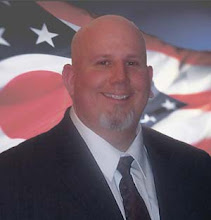In my first installment regarding WikiLeaks, I did exactly what I suggested against: give in to bad rhetoric.
I was called-out – and rightfully so – on the passage stating, "I agree that some action deserves to be taken against [Julian] Assange," WikiLeaks founder. I allowed myself to give-in to the "kill the messenger" rhetoric that has been gaining ever greater circulation in recent weeks.
Even after local columnist Thomas J. Lucente, Jr., refuted that thought with a defense of the First Amendment, I insisted on countering on the grounds of protecting our national security. And, I did it blindly.
I'll admit that the temptation to resort to a useless argument of semantics and context presented itself: "'action… to be taken' doesn’t necessarily mean legal or covert; blah blah blah!"
Now, to engage in minutiae as I often customarily do, my mentioning of potential repercussions for Assange were really meant to be little more than a peripheral lead-in toward my larger point about the ineffectiveness of the Department of Homeland Security.
However, even a nondescript comment in passing such as that illustrates how easy it is to let old habits creep back in. If we believe in the Constitution, then it must apply at all times, not just when it suits our sensibilities.
And, to some greater or smaller extent, that may be part of the intent behind the entire WikiLeaks controversy. A lot of American and international far-left groups are steadily coming to Assange's defense. The Progressive Left – especially domestically – are notorious for their lack of genuine enthusiasm for constitutional rights.
Generating a crisis such as this at a time when White House staffers in the Federal Communication Commission are angling toward a bypass of both the Judicial and Legislative branches in order to establish so-called Net Neutrality regulations creates a perfect atmosphere to whip-up the general public into an angry storm of complicity.
Arguing for government action against Assange falls right in line with that mindset.
While his journalistic claims in this endeavor are dubious at best, in all fairness the same could be said for my crappy little Website.
If there is anyone who could legitimately face criminal consequences, it is Pfc. Bradley Manning, who violated the Uniform Code of Military Justice by improperly downloading the information in the first place and then passing it along to unauthorized recipients.
Even then, as I stated in my previous essay, too much regarding Manning does not add-up for me to believe he truly acted alone or possibly is little more than a patsy for someone else.
In the meantime, what the United States ought to do with Assange is what they should have done when faced with possible entry into World War I: declare that Assange – like that war nearly 100 years ago – is Europe's problem; let them deal with him.
If he is convicted on the criminal sexual conduct charges filed in Sweden, the best choice is to wash our hands on his situation and then brush him aside and into the circular file of history.
Thursday, December 16, 2010
WikiLeaks creating predictable convolution
Labels:
Assange,
Constitution,
Libertarian,
Lucente,
Manning,
WikiLeaks
Subscribe to:
Post Comments (Atom)

No comments:
Post a Comment